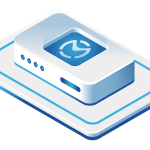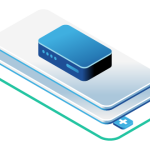This Executive Focus features Todd Robinson, President and Founder of OpenMetal, discussing how OpenMetal On-Demand Private Clouds deliver the advantages of having your own private environment with the ease of spinning public clouds up or down quickly as you desire.
To view more videos like this, visit our YouTube channel.
Speaker
- Todd Robinson – President & CTO, OpenMetal
Video Transcript
There’s now a blurred line with OpenMetal’s On-Demand Private Cloud. We absolutely wanted to borrow from characteristics of the public cloud that we thought were critical, like the ease of spinning up. We call it trivial to deploy. And it’s very much aligned with how the public cloud works. So if I need resources, I can go from having nothing to a few button clicks or an API call to actually having some infrastructure.
So in our case, we enable this by going as a user that is valid in the system to go in, hit the button, and have a full private cloud – three servers with Ceph as a highly available storage system. And OpenStack is already installed on those three servers, they can get it in 45 seconds, it’s going to have your access keys on it, and you can grab a password and you can actually run a let’s say infrastructure code-based system, TerraForm for example, against that. Those APIs are already available to you and create a full VM-based infrastructure in an instant. Well really in a minute, which is very much akin to the public cloud.
Public cloud, you can jump in there, hit a button or make an API call and have a virtual machine. Right, right. It’s the very same situation, as an on-demand private cloud. And so we’ve always been using that term, on-demand private cloud, to help differentiate between a traditional public or private cloud. A lot of people they’re going to have this perception of a private cloud is something that requires planning maybe they need a big team to accomplish it, and you’re gonna have a lot of roles. You’ve got to come up with a big project plan in order to accomplish this. And that’s not the case.
So on-demand private cloud, very much borrowed from the public cloud aspect of ease of use, being able to actually use it on demand, in the sense that you can pay for short-term usage. So let’s say you’ve got this cloud already configured, you’ve got six or seven boxes in there, and you know, you’re coming up on that time that you need a whole lot of additional compute resources. Maybe you’ve got a big development in the books, you’re putting out a new version of your software, and have all kinds of testing. Essentially, you can go in there and in a short period of time add additional hardware units to the existing cloud and have the additional VM or storage available in very, very short order…different configurations, highly customized. Requires a little bit of interaction with the team or by our team to help those servers join in with your cloud, but very, very straightforward.
Like we’re talking hours or half an hour, these types of things instead of days. There are no days involved in this kind of stuff. And so yeah, it’s very much blur the line between public cloud and private cloud, the private cloud aspect still very much remains. Yeah, it’s all yours. It’s 100% of your hardware using your networks. You’re utilizing your system. There’s nobody else in there. It’s just yours and you have root-level access to it, you can make modifications to the cloud. So if you want to have a particular flavor of VM that is not offered by someone else, or if you need to really be very specific in the attributes, you can do so maybe you need additional functionality in the cloud, maybe, maybe even this…
Maybe you would like to have a test program occur, where your development team is going to evaluate Kubernetes as a replacement for your existing way of developing and way of actually writing your applications. Well, guess what? On a private cloud, you can just spin up a little section in that private cloud with different users and allow your team to come into that section of the infrastructure, completely separate from the other sections, and essentially do their research and development and do their learnings all over in that section. Guess what? As long as it fits within what the hardware node can do, it costs you nothing extra. So that’s one of the benefits of the private cloud.
Now, distinct in our world…when we think of private cloud, we’re an open source company, very, very driven by open source. So this system is completely open source. It’s not just at the level where you can make modifications because it’s open source, but it also means it’s license-free. And so there’s no VM tax, there’s no there’s none of this kind of stuff that occurs with other private cloud competitors. And so this is also a distinction that OpenMetal now has compared to other private cloud providers. You’re just not gonna get into that world of like, oh, I spun up a VM and now I’ve got 40 points that I’ve got to pay for. This is the VMware world. We just don’t have that, that doesn’t exist in the open source world because that would be counter to people being able to easily learn the technology. Which you shouldn’t… If all I am doing is learning it, I shouldn’t have to pay 40 points to just figure out how Kubernetes might work for us. No just go try it, learn it, use it.
Now, if you have a huge deployment system. Yes, of course, your hardware expenses are going to change. Your hardware needs are going to change. But again, this is an open source system. So you are really going to often notice these significant differences between other private cloud providers. So I know I’ve covered a lot of things all the way through public cloud and how we’re similar because we believe in a lot of the philosophies, but we also very much believe in private cloud philosophies. We also believe in open source philosophy. So we’ve all kind of shoved that together into what we call our OpenMetal On-Demand Private Cloud.
Engage With Us
Test Drive a Cloud
Get a limited-time free trial to an on-demand hosted private cloud. Business email required. Other eligibility requirements apply.
Connect with our Team
Our team is standing by to assist you with any questions you have about how our on-demand cloud platform can help your business.


































